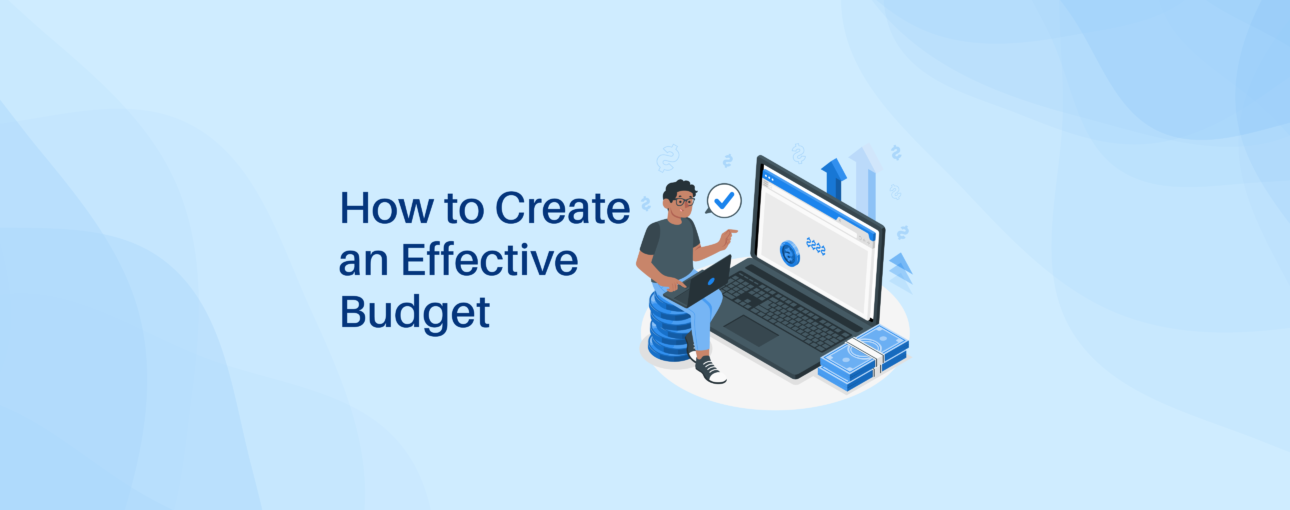Budgeting is the next important step to take after ensuring you have the right money mindset. We have an article on building the right money mindset, you can read it here
Unfortunately, people shy away from budgeting because they think it keeps them restricted or they’ve tried it in the past and we’re unable to follow through. Whatever your experience has been with budgeting, this blog post will help you create a budget that works for you and will help you achieve your goals.
But first, what is budgeting? Budgeting is simply creating a plan on how to spend your money. If you have noticed that your money finishes as fast as you get it and you’re still unable to get important things done then you definitely need a budget!
Whatever you earn, you need to budget it if you’d ever be able to achieve financial freedom. Budgeting isn’t a tool that should only be used when you have a lot of money. The saying “the way you spend 10 dollars is the same way you’d spend 1000 dollars” is very true!
You’d learn in 5 steps to create an effective budget, one that works for you.
1. Calculate your income
Whether you earn a monthly, weekly or daily salary. You need to write out the amount you earn. If you’re a student who’s still getting some stipends from family, you can write it all down. If you’re a freelancer who’s income isn’t at a stipulated time, you can go over the last few months to know the average amount you’ve earned so you can use that amount to create your next budget. Now that you’ve calculated and you know the amount you make, let’s move to the next step.
2. Know your financial goal
Why do you want to create a budget? Is it so you can cut down unnecessary expenses and save more? Invest more? Spend on only what’s important? Knowing what the aim of budgeting is will help you know where your money should go and shouldn’t. It’d also help you stay on course on the days you feel tempted to go against your budget. Always have a realistic and honest goal in mind.
3. Create a template
You can use a budgeting app, a digital planner or even an excel spreadsheet to create your template for your budget. As long as the template you’re using has rows and columns, you’re good to go. Using a notebook is not the best option because if it gets missing, it means your plan is gone! You can divide this into a list of your needs, wants, savings and investments. Make sure it is clearly stated. It’s best you do this ahead so that when money comes in, you already have a plan in place and if you get some unexpected money, you can also map out a budget before you start spending it. This is very important.
4. Put your plans to action
Unfortunately, some people take the time to create a budget but they don’t execute. Creating a budget is a step but the only way it can help you get closer to your goals is if you stick to the plan. It may not be easy because there’d always be something to spend money on. This is why you already have a budget in place, to determine where you want your money to go and not go.
5. Track your expenses
As you execute the plan, there may be some unexpected expenses or you may even go off track. It’s important that you track your expenses. You can do this weekly or monthly. Some bank apps have a section to go through your transaction history, you can also request for a statement of account from your bank so you can see where you have spent money. This will help you as you create the next budget. You will be more conscious of your spendings because it will help you know if there’s anything that’s taking more money that it should e.g eating out too often, spending too much on data because you’re constantly spending time on social media etc.
No matter how little or how much you earn, it’s very important to have a budget. It gives you more control over your money and helps you achieve the financial goals you have. Nobody attains financial freedom by wishing, you need to take steps towards it. Budgeting is a good first step to take. Start today!
Learned something from this blog post? Let’s know.

